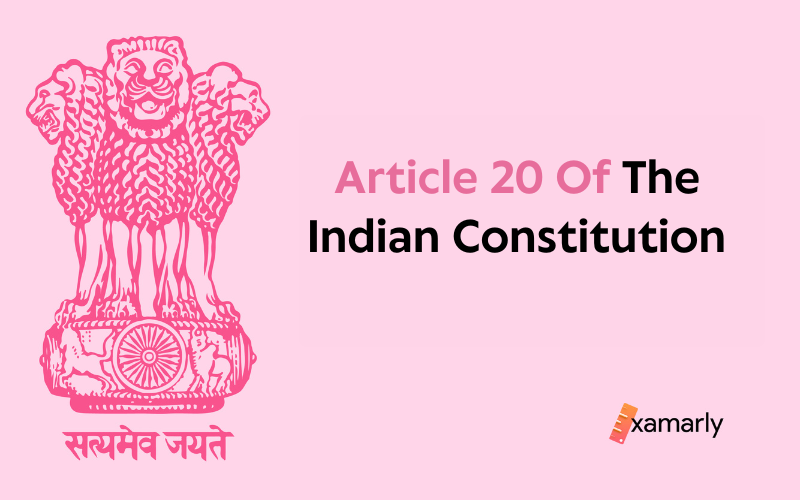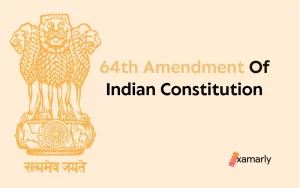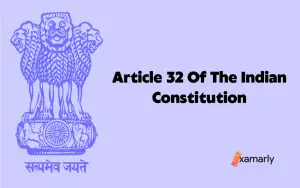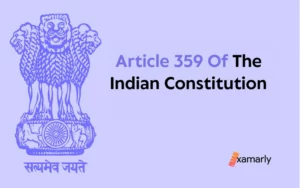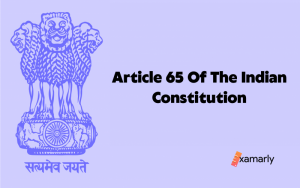Protection against conviction for crimes is covered under Article 20 of the Indian Constitution of Part III. Our constitution attempts to safeguard everyone’s interests. This clause was put into place to stop law enforcement from taking advantage of or harming convicts or convicted individuals. It is a fundamental clause in the Indian Constitution and cannot be waived in times of emergency.
Ex post facto law, double jeopardy, and the ban on self-incrimination will all be covered in this article as well as protection from a conviction for crimes.
- What Is Article 20 Of The Indian Constitution?
- Article 20 (1): Ex Post Facto Law
- Kedar Nath v. State Of West Bengal
- Mohan Lal v. The State Of Rajasthan
- Maru Ram Etc. vs Union Of India & Anr.
- Rattan Lal v. The State Of Punjab
- Article 20(2): Double Jeopardy
- Article 20(3): Prohibition Against Self-Incrimination
- Conclusion
- FAQs
- Which Article Of The Indian Constitution Is Dealing With Protection With Respect To Conviction For Offences?
- How Protection Against Conviction For The Offence Provided In India? When Article 20 Was Imposed?
- How Does The Indian Constitution According To Article 20 Protect An Accused?
- Which Clause Is Applicable While Protecting An Individual From Being Punished Twice?
What Is Article 20 Of The Indian Constitution?
The protection against conviction for crimes is outlined in Article 20.
- No person may be found guilty of an offence unless they violated a law that was in effect at the time the Act charged as an offence, nor may they receive a punishment that is larger than what might have been imposed under the law that was in effect at the time the offence was committed.
- No one may be tried and punished more than once for the same offence.
- No one accused of a crime may be made a witness against themselves.
Article 20 (1): Ex Post Facto Law
The law of Ex post facto is prohibited by Article 20(1) of the Indian Constitution. According to this, no one may be charged with or found guilty of a crime under any laws that were in effect when the accused committed the crime in question. Additionally, the penalties imposed cannot be harsher than they were at the time the offense was committed. According to this clause, rules pertaining to criminal offenses cannot be passed with backward-looking implications.
There are three categories of ex post facto laws:
- legislation that, for the first time following the completion of the act or commission of the omission. It defines a certain kind of act or omission as an offense.
- a law that lengthens the sentence or increases the fine after the offense is committed.
- a law that specifies a new procedure or modifies the current procedure for the prosecution of an individual offence. It is after the offense has been committed.
Kedar Nath v. State Of West Bengal
In this case, the Hon’ble Supreme Court of India observed that anytime a legislative body declares an action to be a criminal offence and/or imposes a penalty for it, it is always prospective in character and cannot be put into effect retroactively to uphold what is being claimed under Article 20 (1).
However, only the process of convicting and sentencing is outlawed by this article; the trial itself is not. Accordingly, this article and the ex post facto law concept prohibit the questioning of a person who has been charged in accordance with a specific procedure.
Mohan Lal v. The State Of Rajasthan
The court held that only conviction and/or sanctions under an ex post facto statute are forbidden under Article 20 and not the trial or prosecution itself in the case of Mohan Lal v. State of Rajasthan (AIR 2015 SC 2098), which included the Narcotics, Drugs and Psychotropic Substances Act. Additionally, a trial conducted according to a distinct method than that which was in place at the time the act was committed is not included in the same and cannot be declared unconstitutional.
Maru Ram Etc. vs Union Of India & Anr.
It was announced that the accused can only be subjected to the title of penalties that are there at the time of commencement of the offense. There shouldn’t be a retroactive effect that increases fines.
Rattan Lal v. The State Of Punjab
There is an exception to this requirement for ex post facto legislation. The Apex Court ruled that criminal legislation may be applied retroactively if the punishment is reduced,
Article 20(2): Double Jeopardy
The American Jurisprudence of Punishment serves as the foundation. It is the foundation for the Double Jeopardy Doctrine. It provides that no defendant may face charges for the same violation twofold and receive the same punishment. It states that a person should not face punishment twice for an identical violation involving the same set of circumstances.
Venkataraman v. Union Of India
In this decision, the Supreme Court ruled that this clause only deals with judicial punishments and specified that no one should face a second trial for an identical violation.
Maqbool Hussain v. The State Of Bombay
In this instance, the Apex Court made legal history. Lex loci gold was in the accused’s hands at the time. His gold was taken by the customs officers. The question of whether this constituted double jeopardy was brought up when he was subsequently charged with the offense and showed up in court. The Court ruled that the Customs Authority’s proceedings are not comparable to those of any court or tribunal. According to the ruling, departmental proceedings are distinct from those of the judicial court and are autonomous from one another.
Article 20(3): Prohibition Against Self-Incrimination
According to this clause, no one can be made to give any information—oral or written—that could be used against them in subsequent legal procedures. A criminal offence must be involved for the prohibition of self-incrimination to be effective. This rule also has an exception.
According to Section 91 of the Code of Criminal Procedure, authorities may order the accused to bring and present whatever documents he may have in his possession. They must present whatever documents he may have in their possession. The accused must honestly and accurately respond to all questions, leaving out any that might be used against him at a later stage of matters of the trial, per Section 161 as mentioned in the Criminal Procedure Code.
M.P. Sharma v. Satish Chandra
It was ruled about the word “Witness” as used in this article. It refers to both oral and written testimony in this particular case. Authorities are able to conduct a search anywhere they like and seize any document. Any details the accused voluntarily offers are acceptable.
Narayanlal vs Maneck
In this case, a major fact was determined. It mentioned that in order to use the prohibition on self-incrimination, a formal accusation against the person was necessary. This rule cannot be applied based only on general investigations and inquiries.
Nandini Sathpathy vs P. L. Dani
An additional probe was to begin once the former chief minister of Orissa appeared at the police station for questioning on this issue. In accordance with the 1947 Prevention of Corruption Act, a case was filed against her. She was subjected to a variety of written interrogations. She requested protection from self-incrimination and declined to provide any information. The Supreme Court oversaw that the prohibition against self-incrimination serves to shield the accused from pointless police interrogations and harassment outside of the trial’s proceedings.
For Further Reading:
Conclusion
The purpose of Article 20 is widely important. It is covered in Part III under the Right to freedom. It is to protect citizens from the needless actions and restrictions of the Authorities. It protects the legislative, executive, and judicial processes since Parliament is not allowed to make laws that have passed their effective dates, and the Executive is not allowed to harass anybody or any accusation without cause. Multiple defendants cannot be accused of the same crime by the legal system. Whether the accused is an Indian or a foreigner, they are afforded this protection.
FAQs
Which Article Of The Indian Constitution Is Dealing With Protection With Respect To Conviction For Offences?
The Indian Constitution’s Part III, Article 20, addresses protection service against conviction for crimes.
How Protection Against Conviction For The Offence Provided In India? When Article 20 Was Imposed?
The “Article 20” has only partially provided the protection that many accused individuals needed because it was confined by several restrictions. As a result, cases have been divided into a variety of categories that are related to crimes. Ex post facto law, double jeopardy, and self-incrimination were the included elements.
It was imposed in 1949 in the Indian constitution.
How Does The Indian Constitution According To Article 20 Protect An Accused?
A fundamental right that protects an accused person’s rights is Article 20. It establishes three ideas:
1. Ex-post-facto law, Article 20(1)
2. Double Jeopardy, Article 20(2)
3. Right not to be used against oneself, Article 20(3)
Which Clause Is Applicable While Protecting An Individual From Being Punished Twice?
Clause 2 of Article 20 is applicable while protecting an individual from being punished twice.


